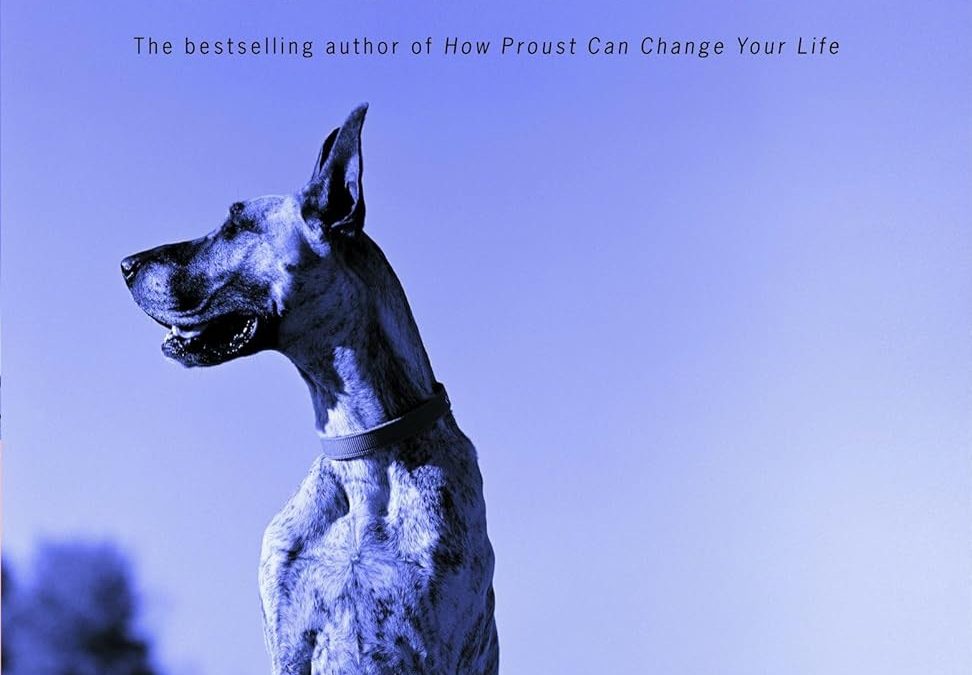A Soothing Balm for the Modern Soul: Deconstructing Our Need for Approval
Alain de Botton’s Status Anxiety is not just a book; it’s a diagnosis and a form of therapy for a pervasive modern condition. With the elegant prose of a philosopher and the comforting bedside manner of a therapist, de Botton dissects one of the central anxieties of our time: the fear of being perceived as insignificant, unsuccessful, or low-status.
The Central Thesis: Why We Worry About What Others Think
De Botton’s core argument is that status anxiety—the constant worry about our position in the social hierarchy—stems from a fundamental human need for love and respect. However, in the modern world, we have conflated respect (which we feel is earned through achievements and status) with love (which we hope is unconditional).
He posits that this anxiety is particularly acute in modern meritocratic societies. Unlike in fixed aristocratic systems where your place was predetermined, the promise of the American Dream or its equivalents is that “you can be anything you want.” The flip side of this liberating idea is a crushing burden of personal responsibility. If you fail, the logic goes, it is not because of your station in life but because of you—you weren’t smart, hard-working, or talented enough. This internalization of failure is the engine of status anxiety.
Structure and Style: A Grand Tour of Ideas
The book is beautifully structured and accessible, characteristic of de Botton’s talent for making philosophy practical and relevant.
Part 1: The Diagnosis brilliantly identifies the causes of status anxiety, which he categorizes as Lovelessness, Expectation, Meritocracy, Snobbery, and Dependence (on the opinions of others for our livelihood).
Part 2: The Solutions is a fascinating grand tour of Western thought, exploring how different philosophies and arts have attempted to cure this anxiety. He looks to history for Perspective, philosophy for Reason, art for Art, politics for The Sublime, and Christianity for Bohemian values (challenging mainstream notions of success).
De Botton supports his arguments not with dry data, but with a rich tapestry of art, history, literature, and philosophy. He draws on thinkers from Schopenhauer to Marx, artists from Van Gogh to Hopper, and writers from Austen to Proust to illustrate his points. The book itself is lavishly illustrated with images that perfectly complement the text, making it a visually engaging experience.
Strengths
Profoundly Relatable: Almost every page will elicit a nod of recognition. De Botton articulates feelings we all experience but rarely examine—envy at a friend’s promotion, the shame of being asked “What do you do?” at a party, the fleeting thrill of a social media like
Intellectually Liberating: By tracing the historical roots of our anxieties, the book provides immense perspective. It shows that our feelings are not personal failings but often logical responses to the world we’ve built. This is incredibly freeing.
Practical Wisdom: This is not an abstract philosophical text. It offers tangible “solutions” by encouraging us to adopt new lenses through which to view the world, our ambitions, and the opinions of others.
Potential Weaknesses
Lacks Concrete Steps: Some readers might find the “solutions” a bit theoretical. De Botton provides a new framework for thinking but not a step-by-step guide to a less anxious life.
Broad Strokes: To build his argument, de Botton sometimes makes sweeping generalizations about historical periods and philosophical movements. Scholars might find his summaries a little reductive, though they serve his popular audience well.
A Privileged Perspective: The critique could be made that the book speaks primarily to those who already have a certain level of material security and are anxious about their relative status, rather than those facing absolute poverty and survival.
Final Verdict
Status Anxiety is a brilliant, generously illustrated, and deeply written book. Its power lies in its ability to make you feel understood and then to arm you with the wisdom of the ages to defend yourself. It doesn’t preach asceticism but promotes a thoughtful, conscious engagement with your own ambitions.
By the end, you are equipped to catch yourself in moments of anxiety and ask: Is this a case of snobbery? Are my expectations out of line? Am I applying a flawed meritocratic logic? And most importantly, you have a repertoire of perspectives—from philosophy, art, and history—to find a quieter, more solid ground upon which to build your self-worth.
